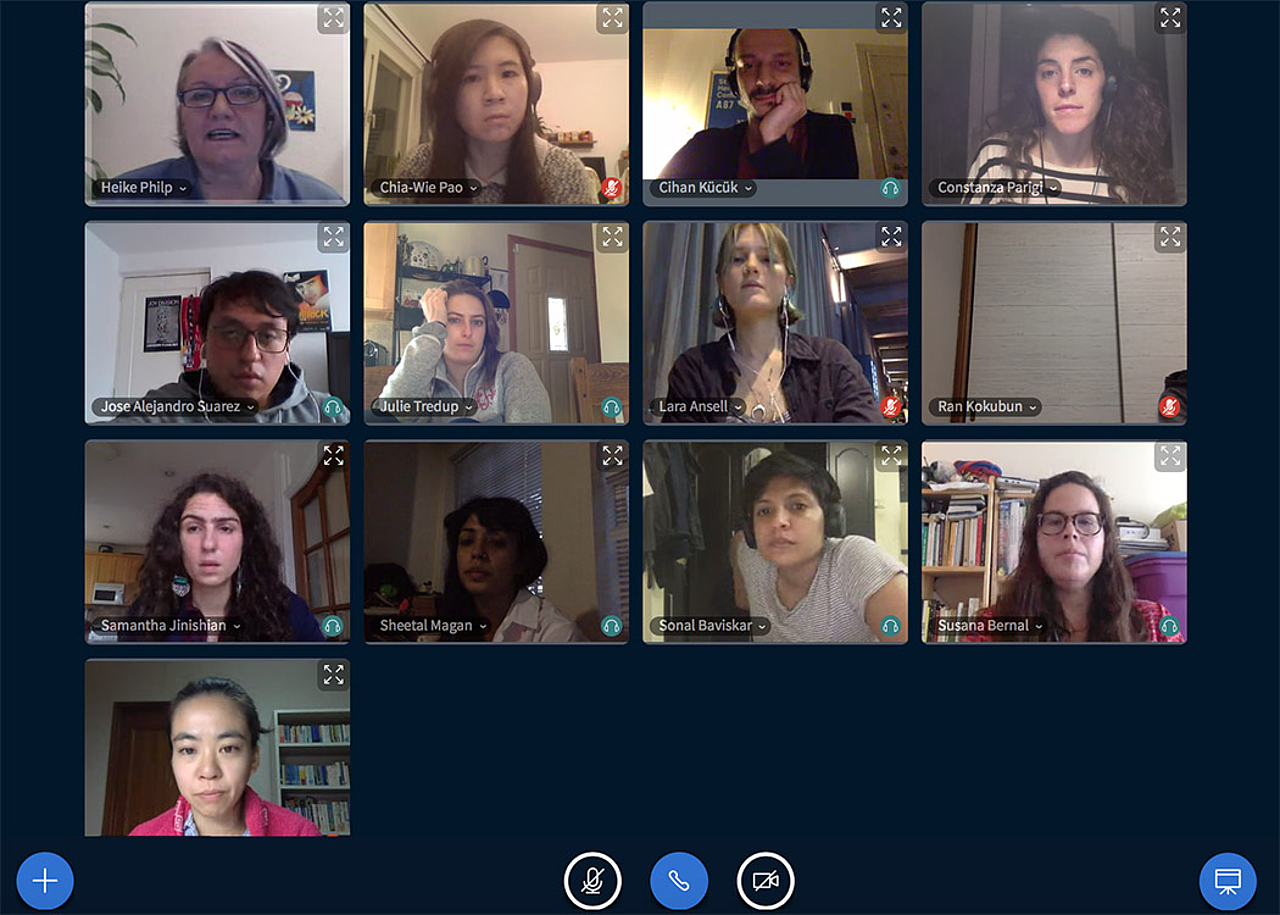Information about Distance Learning
The M.A. Visual and Media Anthropology is one of the leading Distance Learning Master programs in Visual Anthropology worldwide. Founded in 2008 the MA program employs a distinguished teaching staff and engages the latest in e-learning technologies to prepare students from around the world with both theoretical knowledge and practical skills for a successful career in visual and media anthropology and its related fields. While the majority of the program is facilitated via e-learning there are two optional in-house workshops held in Berlin available to those students who wish to attend.
From winter semester 2023/24, Media University Berlin is offering another distance-learning study program: The M.A. program in M.A. Artificial Intelligence and Societies is a new cutting-edge interdisciplinary Master’s program designed for students interested in the intersections of artificial intelligence technologies and societies, focusing on social anthropology, virtual environments, sustainability, and cultural industries.
Our study programs are using a world clock meeting planer to find the best meeting times for students and lecturers from different continents. All e-learning classes are recorded, making it possible for students who may have difficulties attending classes, to stay up to date.
The programs licensed Canvas LMS, one of the premier Learning Management Systems. On our Canvas platform students can find course content, readings, assignments, announcements and grades and they can upload files and communicate with each other as well as with their lecturers.
Furthermore, seminars take place with avatars in Horizon Workrooms via the Meta Quest 2 Headset. Media University also owns a whole island in Open Sim and a plot in Second Life with its own virtual seminar rooms and office spaces for virtual classes with avatars and for ethnographic research practice in virtual environments.
The programs use a combination of four different e-learning methods:
1. CANVAS LMS
Course content, readings, audiovisual media and assignments are presented online via one of the world-bests learning management systems LMS Canvas.
2. Zoom
The core of the programs consists of daily 90 minute real-time webinars for students with webcam, voice-chat and text-chat function. All lecturers are trained by a professional Webinar and LMS trainer.
Through zoom our lecturers and students can actively discuss and give presentations online related to weekly readings and viewing. Students who are unable to attend live classes are able to watch recordings of their classes. The screensharing function is used for editing classes, where students are able to discuss their video editing steps with their lecturer.
3. Virtual classrooms
Students and lecturer meet online with avatars in a virtual classroom environment. The Media University owns an island with a 3D building of the Campus in Open Sim.
The study programs are two of the first programs world-wide that offer seminars in Horizon Workrooms. Students and lecturers meet with the Meta Quest 2 headsets and avatars with hand-tracking technology in Horizon Workrooms. They embark on excursions and research in immersive 360 degree worlds to examine the challenges and risks of virtual environments as well as their cultural and economic meanings.









